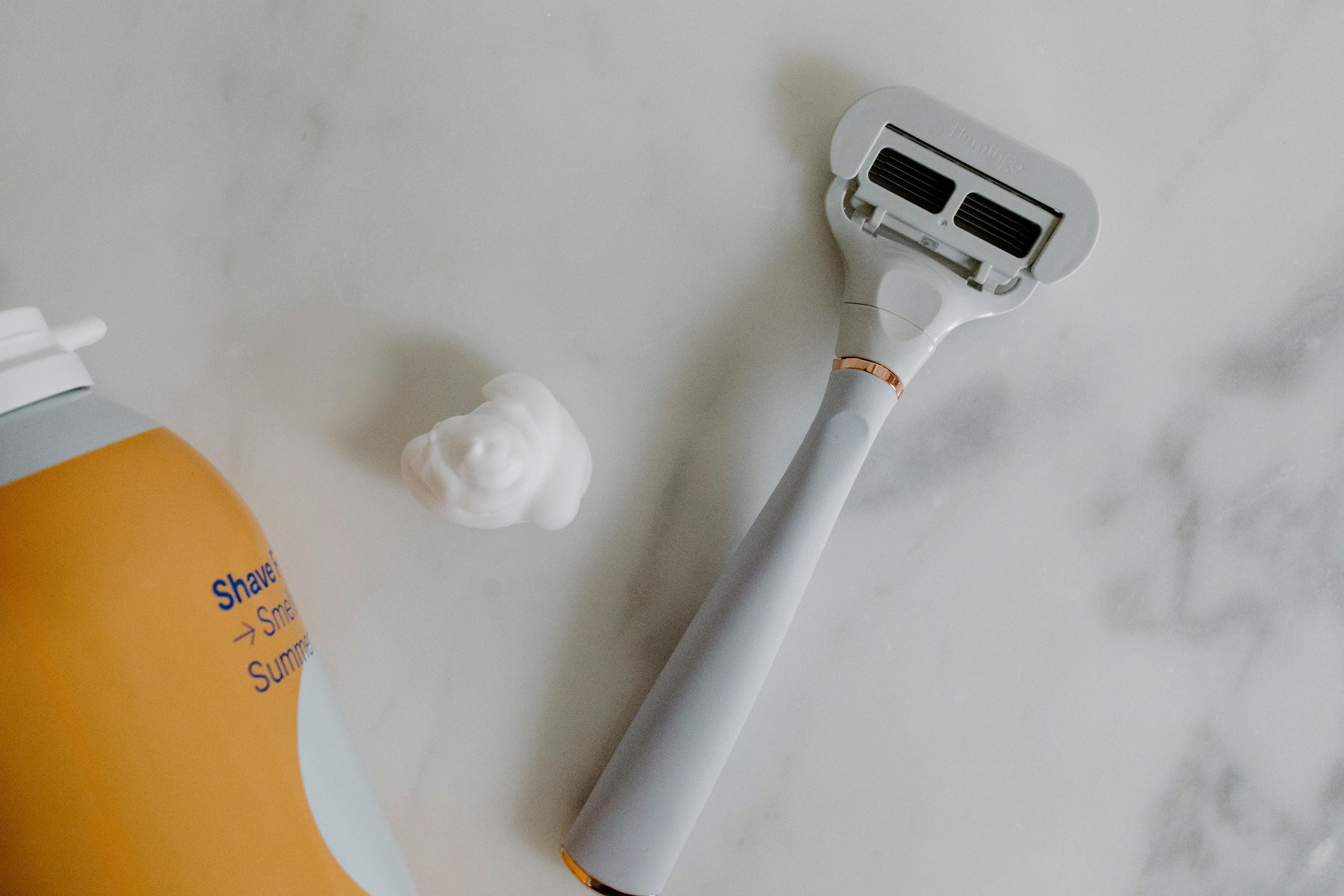Effective Ways to Fix Dry Scalp in 2025: Discover Proven Solutions

Effective Ways to Fix Dry Scalp in 2025: Discover Proven Solutions
Dealing with a dry scalp can be both uncomfortable and frustrating. As we dive into 2025, understanding the best methods to treat and manage dry scalp is essential for maintaining healthy hair and skin. The issues stemming from dry scalp can lead to itching, flaking, and irritation, which can severely impact one's quality of life. This article aims to explore various dry scalp treatments, including the best shampoos, natural remedies, and lifestyle changes that can help manage this condition effectively.
Whether you're dealing with chronic dryness or seasonal fluctuations, addressing dry scalp issues is crucial for overall scalp health. In this article, we will provide valuable insights into the causes of dry scalp, the importance of proper scalp care routines, and the most effective products and home remedies to restore moisture and improve scalp conditions. Let's delve deeper into understanding what contributes to dry scalp and how we can alleviate its symptoms.
Key takeaways include an in-depth look at the benefits of essential oils for scalp health, the role of diet in maintaining scalp moisture, and various therapies available for chronic dry scalp treatment.
Understanding the Causes of Dry Scalp
Before implementing a treatment plan, it's vital to understand the underlying causes of dry scalp. Several factors contribute to increased dryness, ranging from environmental to physiological. Climate conditions can severely affect moisture levels in the skin, particularly during winter, leading to exacerbation of dry scalp conditions. Indoor heating and lack of humidity can strip moisture from the scalp, resulting in dryness and irritation.
Another significant factor is personal care habits. Frequently washing hair with harsh shampoos can disrupt the natural oils that protect the scalp, leading to an imbalance in moisture. Additionally, skin conditions like eczema or psoriasis can contribute to dry scalp, as these issues lead to chronic dryness and flaking.
When understanding scalp dryness, it's also essential to recognize irritants that may be present in hair care products. Such ingredients can trigger reactions that exacerbate dryness and lead to an itchy scalp. Therefore, choosing suitable products is crucial for both treating and preventing dry scalp symptoms.
Managing dietary habits can also play a role in maintaining scalp health. Nutritional deficiencies, particularly in essential fatty acids and vitamins, can lead to elevated scalp dryness. Ensuring a balanced diet rich in vitamins and minerals can help reinforce your body's natural defenses against dryness.
In summary, being mindful of both internal and external factors affecting your scalp is the first step to successful treatment. This naturally leads us to discuss effective treatment options available in the market.
Top Dry Scalp Treatments Available in 2025
When looking for the most effective dry scalp treatment, you will find a plethora of options incorporating various ingredients and formulations. The best shampoo for dry scalp often contains moisturizers and calming agents like aloe vera, coconut oil, or tea tree oil. These ingredients promote hydration and help soothe irritation, making them ideal for daily use.
In addition to cleansing, moisturizing scalp products can play a crucial role in restoring moisture. Hydrating serums and scalp oils that feature nutrient-rich oils are particularly beneficial. Products infused with ingredients like jojoba oil or argan oil provide excellent moisture retention, combating dryness effectively.
Hydrating scalp masks are another excellent option. These treatments can be applied weekly for intensive moisture delivery that revives dehydrated skin. Look for masks containing hyaluronic acid or natural oils to lock in hydration.
Moreover, topical treatments specifically formulated for dry scalp can offer significant relief. Many antifungal shampoos and treatments exist that are designed to address issues associated with fungal infections, which can worsen dryness.
For instance, the use of essential oils for scalp health offers a natural avenue for treatment. Oils such as peppermint and rosemary not only hydrate the scalp but also stimulate blood circulation, promoting a healthier scalp. Integrating these products into your routine is crucial for achieving lasting results.
To further enhance effectiveness, combining these treatments with a robust scalp care routine can yield the best outcomes. Regularly exfoliating the scalp and employing soothing methods will minimize dryness while enhancing overall health.
Natural Remedies for Dry Scalp Relief
Natural remedies can provide effective solutions for managing dry scalp issues. Many people turn to home remedies for dry scalp that utilize common household ingredients to soothe the scalp without harsh chemicals. Aloe vera gel is known for its cooling properties and can help hydrate a dry scalp. Simply apply fresh aloe vera directly to the scalp and leave it on for about 30 minutes before rinsing it off. It offers both hydration and relief from itching.
Another popular remedy is coconut oil, renowned for its moisturizing capabilities. Massaging warm coconut oil into the scalp can replenish dry skin and improve overall scalp health. This practice enhances circulation while delivering essential fatty acids directly to the scalp.
Additionally, the benefits of honey on the scalp should not be overlooked. Its natural humectant qualities trap moisture and help nourish the scalp, making it an excellent ingredient for homemade scalp masks. Mixing honey with olive oil or yogurt can create a soothing mask that identifies dry patches and revitalizes the skin.
Scalp massages can also significantly improve moisture retention. They stimulate blood circulation, enhance nutrient delivery, and promote better absorption of moisturizing products. Daily or weekly massages can be a beneficial habit, especially when combined with a high-quality natural oil for dry scalp.
Incorporating these remedies into a lifestyle routine, combined with an understanding of individual scalp needs, will begin to show marked improvements. However, effective treatment requires consistency and patience.

Importance of a Consistent Scalp Care Routine
Creating and adhering to a scalp care routine can pave the way for long-term relief from dry scalp issues. An effective scalp care routine should begin with the careful selection of shampoos, particularly those formulated for dry scalp treatment. Products that are sulfate-free will help prevent stripping natural oils, contributing to a hydrated scalp environment.
Regular scalp exfoliation techniques are crucial as they remove dead skin cells and promote the turnover of new, healthy cells. Incorporating gentle exfoliation products into your routine can aid in maintaining balance and preventing dry flakes from accumulating.
Another critical aspect is scheduling regular deep conditioning treatments into your hair regimen. This ensures that your scalp receives necessary moisture and nutrients, which may be lacking due to external factors or harsh products.
Hydrating hair treatments also play an integral part in overall scalp health. Such treatments can involve leave-in conditioners or nourishing oils applied to both hair and scalp post-wash.
Eating a healthy scalp diet can also positively impact moisture retention. Nutrients such as omega-3 fatty acids, vitamins A, D, and E, and minerals like zinc contribute to well-nourished skin and hair. Therefore, incorporating food sources rich in these nutrients should be an essential part of your routine.
Establishing diligence in your scalp care routine will not only help prevent the recurrence of dryness but also enhance overall scalp and hair health. Building on these fundamentals, let's explore some expert recommendations for dry scalp management.
Expert Recommendations for Managing Dry Scalp
Consulting professionals in the field of scalp health can be invaluable. Dermatologists or trichologists can provide insights into underlying issues contributing to chronic dry scalp treatment. They might recommend specific therapies tailored to individual needs or offer targeted products that contain clinical-grade ingredients.
Regularly reviewing product ingredients is critical in maintaining scalp wellbeing. Look for products with beneficial vitamins for the scalp, such as B vitamins and antioxidants, which can support skin barrier function while mitigating dryness.
Furthermore, adopting preventive measures for scalp dryness, such as wearing hats in harsh weather and avoiding hot water during hair washing, can make a notable difference. Additionally, those suffering from chronic issues might want to explore medicated shampoos that combat fungal issues associated with dry scalp.
It's also essential to identify any exterior elements that might be exacerbating dry scalp. Sometimes lifestyle changes intended for overall health can directly or indirectly affect scalp conditions. Optimizing hydration through increased water intake and humidity in living conditions can lead to significant improvements.
Lastly, understanding scalp sensitivity and how to manage it can also serve as an essential component in treatment. Choosing sensitive scalp products that are free from irritants can prevent flare-ups and nourish the scalp effectively.
Incorporating these recommendations can assist individuals not only in managing dry scalp effectively but also in fostering a healthier environment for hair growth. 
Q&A: Common Questions about Dry Scalp
What are the symptoms of dry scalp?
Symptoms can range from visible flaking and scaling to redness and itchiness. Individuals may also experience tightness or irritation in the scalp following hair washing.
How can I prevent dry scalp during winter?
Consider lifestyle changes such as using humidifiers at home to add moisture to the air. Additionally, using hydrating shampoos and conditioners specifically designed for dry scalp can assist in keeping your scalp nourished.
Are natural oils effective for treating dry scalp?
Yes! Natural oils such as coconut oil, argan oil, and jojoba oil are effective treatments that not only hydrate but also provide essential nutrients to the scalp.
What should I look for in a conditioner for dry scalp?
Look for conditioners that are specifically formulated for dry scalp. Ingredients like hyaluronic acid, natural oils, and soothing agents should be prioritized for maximum hydration and relief.
Can diet impact scalp health?
Absolutely. A healthy diet rich in essential nutrients, particularly fatty acids, vitamins, and antioxidants, is crucial for maintaining a hydrated and healthy scalp.